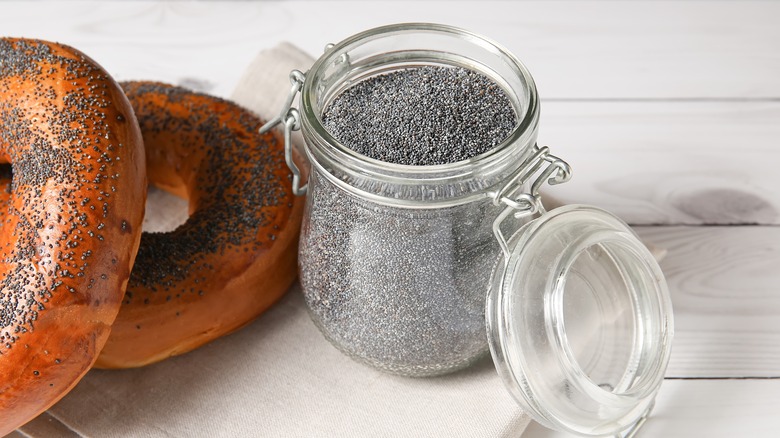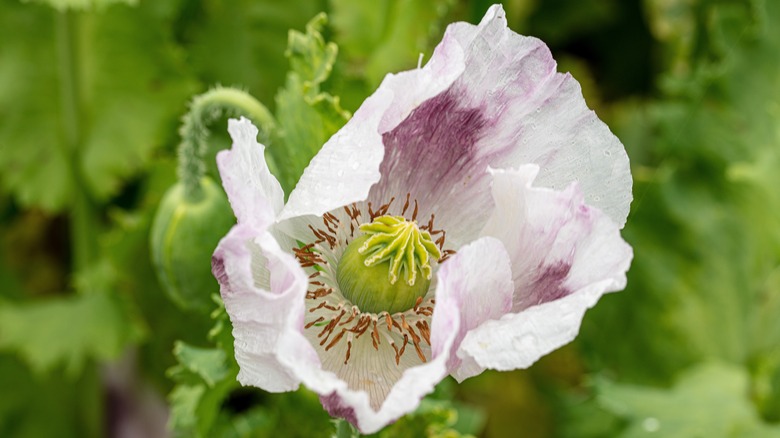Can You Grow Flowers From Grocery Store Poppy Seeds?
It's tempting to wonder if that little jar of grocery store poppy seeds in your pantry could do more than top bagels — could they grow flowers in your garden, too? Most culinary poppy seeds come from the opium poppy (Papaver somniferum), a hardy annual that produces stunning flowers in shades of red, purple, and white. The challenge is that some seeds are processed in a way that damages their ability to germinate. So the answer is yes, you can grow grocery store poppy seeds in your garden, but not all of them.
Even whole seeds can be tricky. Physical damage during harvesting and handling, or grinding after the washing and drying process, can destroy the germination capacity of seeds. If grocery seeds are unground and stored in dry, cool conditions, they might still sprout.
To find out whether your seeds are worth planting, there's a simple paper towel trick that makes testing seeds for viability a breeze. Moisten a paper towel, spread out 10 seeds, and fold the towel over them. Place it inside a sealable plastic bag or container to maintain humidity. Label the bag with the date and set it in a warm location, such as the top of a refrigerator or near a sunny window. Most viable poppy seeds will sprout within seven to 14 days. If 70% or more of the seeds germinate, the batch is still usable. Less than 60%, and you're better off buying poppy seeds from a garden store or trying another batch of culinary ones.
How to grow grocery store poppy seeds in your garden
Papaver somniferum grows best in full sun and well-drained soil. The perfect time of year for planting poppies isn't what you'd expect — seeds should be sown directly into the garden in late fall or very early spring, timing that allows natural freeze-thaw cycles to help break dormancy and improve germination through cold stratification. The seeds are extremely small, with more than 100,000 per ounce, and require light to germinate. One of the mistakes everyone makes when planting poppies is burying them too deep. Scatter seeds sparingly on the surface of finely prepared soil and cover with no more than 1/8 inch of loose soil.
Because these plants are cold-hardy, seedlings often survive light frost, and they flower best in cooler conditions. However, they don't transplant well, so start them where they'll grow rather than trying to grow them indoors first. Before they reach 6 inches tall, thin them to avoid overcrowding and give them a small amount of nitrogen fertilizer just before flowering begins. Expect blooms in spring and summer, with mature seed pods forming 80 to 90 days after planting.
Finally, make sure you're working with washed seeds. Unwashed poppy seeds can contain traces of opium alkaloids on their surfaces, depending on how they were harvested. While the seeds themselves contain no opium, any residue can raise legal and safety concerns. Stick to clean, culinary-grade seed and grow only for ornamental or edible use.

